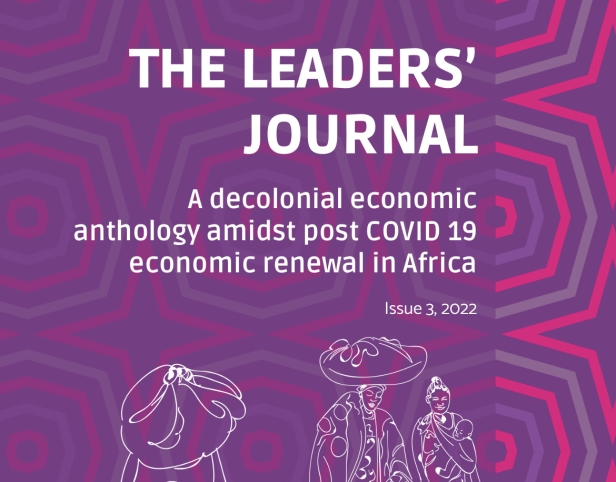
In the words of Yvonne Vera, ‘A woman writer must have an imagination that is plain stubborn, that can invent new gods and banish ineffectual ones’. Professor Sylvia Tamale, a Ugandan feminist scholar, and educator spoke at the 2022 African Feminist Forum on decolonizing knowledge and implored feminists to engage vigorously with feminist writings and works and to write and document with equal verve so as to keep us flooding the past and our future with light. In support of this point, Dr. Awino Okech emphasised the importance of building and visibilising African feminist knowledge systems by citing African scholars.
Akina Mama wa Afrika (AMwA) with support from the Rosa Luxemburg Stiftung East Africa Office under the auspices of the African Feminist Thought Leadership (AFTL) Series sought to radicalize, disrupt and contribute to intellectual activism through The LEADERS’ Journal, a platform for feminists to provide thought leadership and to create homegrown repositories of knowledge on gender issues using feminist tools of analysis.
The 3rd issue of the Journal under the theme, A Decolonial Economic Anthology amidst Post COVID-19 Economic Renewal in Africa, explores the limitations of the current economic and governance system and the exclusion of African women in all their diversities using a historical feminist lens. The submissions include reflections on the concept of debt justice and feminist analyses of the debt crisis, public service delivery, social inclusion, taxation using a historical lens and the need for a gender-responsive lens in policy-making and fiscal management. The linkages between reproductive labor, family planning and decision-making participation are also analysed through an African feminist lens. The Journal is timely to influence the current debates and dialogues on the impact of the pandemic and economic recovery, debt restructuring, and austerity measures at the national, regional and global levels. The recommendations by the authors provide the framing and feminist alternatives that address the marginalisation of African women and gender-expansive persons in their diversities and the need for them to be active and engaged participants in public and social life.
Download the LEADERS’Journal here!

